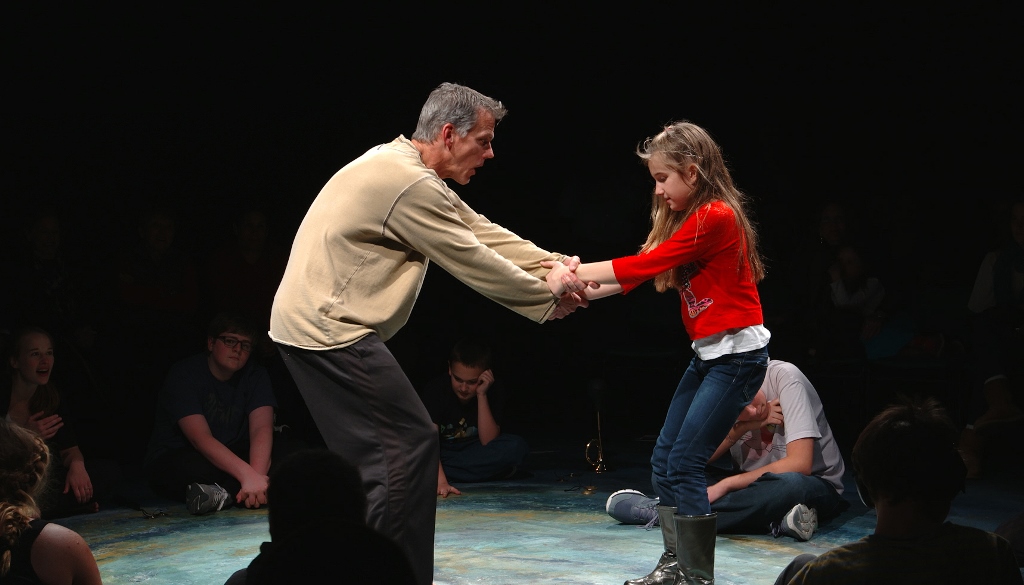By Conan Milner | The Epoch Times
For centuries, the plays of William Shakespeare have been celebrated for their larger-than-life storytelling and rhythmic language. Now the Bard’s work is being studied as a way to help children overcome challenges associated with autism.
Kelly Hunter, an actress with the Royal Shakespeare Theatre Company in London, developed a method using Shakespeare’s plays to help kids struggling with these social deficits. It’s called the Hunter Heartbeat Method (HHM).
HHM provides a playful opportunity to practice and understand emotional expression through drama games related to a particular play. The idea is that if kids with autism can act out social interaction, it won’t seem so confusing in the real world.
OSU drama professor Kevin McClatchy is one of the artist-facilitators in the study. He has seen HHM help children overcome various obstacles, from recognizing the boundaries of personal space, to talking.
“Verbal skills are profoundly difficult for some kids, but over the course of a workshop you’ll see them snapping off a line of complex text,” McClatchy said. “You’ll see a child become more and more adept at eye contact until they develop what we consider more socially common eye contact.”
Shakespeare may seem like an odd tool for treatment, but his work has features that make it uniquely suited for the task.
Research finds that people with autism and other neurological issues respond well to rhythmic interventions. At the heart of HHM is the rhythm of Shakespearian language. Hunter found that kids respond well to the Da-dum, Da-dum cadence of iambic pentameter—a rhythmic pattern found in all Shakespeare’s work. Children with autism also appreciate routine and repetition, so each session of HHM begins and ends with an emphasis on this heartbeat pattern.















Referring to the article, it’s easy to dismiss iambic pentameter as obsolete, but its definite rhythm and points of emphasis help provide order, rest and discipline to an unruly world and unruly minds, in this case autism.
Very interesting! I watched PBS program last night about the new musical, Hamilton, and there was praise for it being like Shakespeare in that it took the words of the people, used history like he did. I wonder how autistic children would react to the play that has attracted so many awards.
In India we believe that classical music cures many diseases. HHM sounds similar. Modern poets to veil their inability to compose metrical verses might have espoused free verse (evidently), but I always believed that disciplined art, be it poetry or music, has divine and arcane properties which the modern science is yet to start exploring.
A great article, and I agree: iambic pentameter can never be obsolete; it is only dismissed by people who clearly do not have sufficient skill or imagination to use it! It’s like wielding a double-handed broad sword – not suitable for every antagonistic encounter (in a small space a dagger can be better), and difficult to wield and use effectively, but in the open plain of full warfare, astonishing and powerful. Love the article, and how accessing the heart – through the da-dum pattern – heals even the seemingly most intractable of problems.